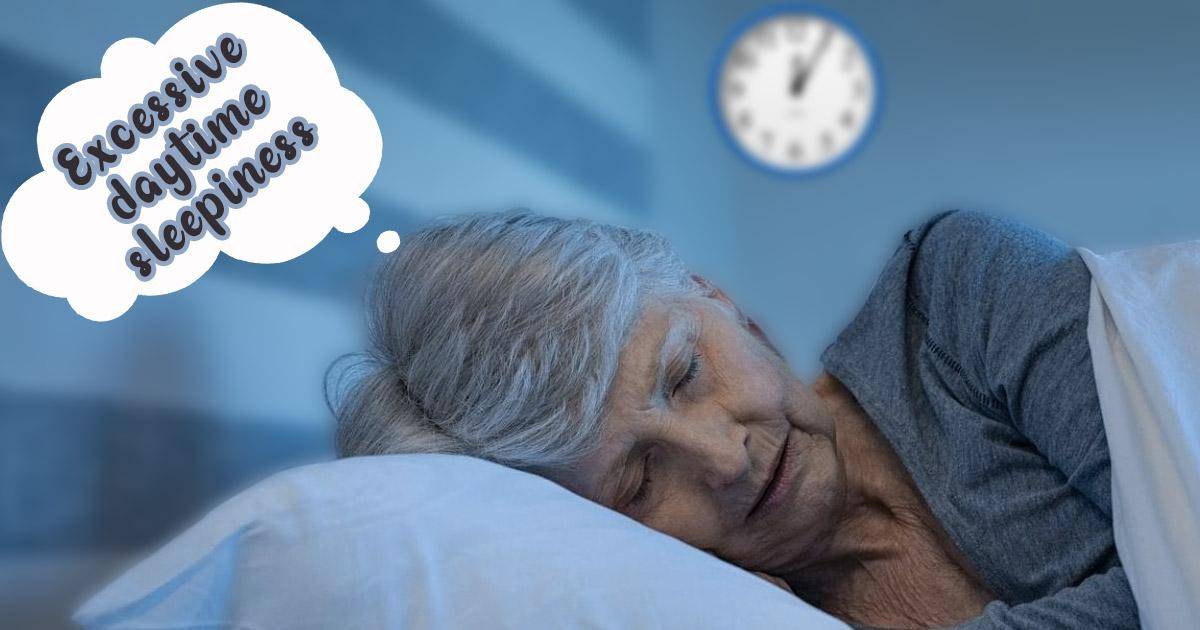Understanding and Managing Sudden Excessive Sleepiness in the Elderly

Our bodies go through a lot of changes as we move through life. The human body changes and develops as we age, taking on characteristics of both our younger and older selves. However, as we age, we may face some difficulties that might have a major effect on our day-to-day functioning.
One such challenge faced by the elderly is sudden excessive daytime sleepiness, which can have profound effects on their ability to engage with family and experience life to the fullest. In this article, we will explore the causes of this sleep-related concern, its disadvantages, and potential remedies that can help restore vitality and connection in the lives of older individuals.
Causes of Sudden Excessive Daytime Sleepiness
Sudden excessive daytime sleepiness, also known as hypersomnia, is a condition characterized by an overwhelming urge to sleep during daytime hours. While occasional tiredness is a normal part of aging, persistent and excessive sleepiness can be indicative of underlying health issues. Some common causes of sudden excessive daytime sleepiness in the elderly include:
Sleep disorders: Conditions like sleep apnea, restless legs syndrome, and insomnia can disrupt the quality and duration of sleep, leading to daytime sleepiness.
Medications: Certain medications used to manage age-related health conditions may have side effects that induce drowsiness and interfere with wakefulness during the day.
Circadian rhythm changes: The natural sleep-wake cycle tends to shift as we age, resulting in earlier bedtimes and waking up earlier in the morning. This shift can contribute to daytime sleepiness.
Chronic conditions: Health conditions such as depression, diabetes, or anemia can sap energy levels and contribute to excessive sleepiness.
Lack of physical activity: Reduced physical activity and a sedentary lifestyle can lead to diminished energy levels and an increased desire to sleep during the day.
Disadvantages of Sudden Excessive Daytime Sleepiness
The consequences of sudden excessive daytime sleepiness extend beyond a mere inconvenience. For the elderly, it can significantly impact their quality of life and limit their ability to participate in meaningful activities. Some disadvantages of this condition include:
Reduced engagement with family: Excessive sleepiness can lead to missed opportunities for spending quality time with loved ones, limiting the connection and bonding experiences that are vital for emotional well-being.
Decreased social interactions: Feeling excessively sleepy during the day may cause older individuals to withdraw from social events, leading to isolation and potential loneliness.
Impaired cognitive function: Persistent sleepiness can impair concentration, memory, and overall cognitive abilities, making it challenging to perform daily tasks and participate actively in conversations or activities.
Increased risk of accidents: Excessive daytime sleepiness raises the risk of accidents and falls, jeopardizing the safety and well-being of older individuals.
The decline in overall physical health: Lack of energy and reduced physical activity associated with excessive sleepiness can contribute to muscle weakness, weight gain, and a decline in overall physical health.
How to Cure Sudden Excessive Daytime Sleepiness in the Elderly
Addressing sudden excessive daytime sleepiness in the elderly requires a comprehensive approach that targets the underlying causes and promotes healthy sleep habits. Some strategies for alleviating this condition include:
Seeking medical evaluation: Consulting a healthcare professional can help identify and address any underlying health conditions, sleep disorders, or medication-related factors contributing to excessive sleepiness.
Improving sleep hygiene: Establishing a consistent sleep schedule, creating a relaxing bedtime routine, and ensuring a comfortable sleep environment can promote better sleep quality and reduce daytime sleepiness.
Encouraging physical activity: Engaging in regular exercise and maintaining an active lifestyle can enhance overall energy levels and combat daytime sleepiness.
Medication adjustments: If certain medications are causing excessive sleepiness, discussing potential alternatives or adjusting dosages with a healthcare provider may be beneficial.
Managing underlying conditions: Treating and managing chronic conditions like depression or sleep disorders can alleviate excessive sleepiness as a symptom.
The elderly may reclaim control of their wakeful hours, have meaningful interactions, and embrace the joys of life in their golden years by learning about the reasons, drawbacks, and potential cures for unexpected excessive daytime drowsiness.
The Importance of Addressing Sudden Excessive Sleepiness in the Elderly
In conclusion, addressing and understanding the underlying causes of sudden excessive daytime sleepiness in the elderly is of utmost importance. The elderly can be given the tools they need to live meaningful lives, have close relationships with loved ones, and enjoy their golden years by recognizing the importance of a good sleeping pattern and treating the underlying factors contributing to sudden excessive daytime drowsiness.
Remember, sleep is not just a passive state; it is an active process that rejuvenates the body, mind, and spirit. So, let us prioritize sleep health and ensure that our elderly population receives the care, attention, and understanding they deserve, enabling them to thrive and flourish in their later years.
